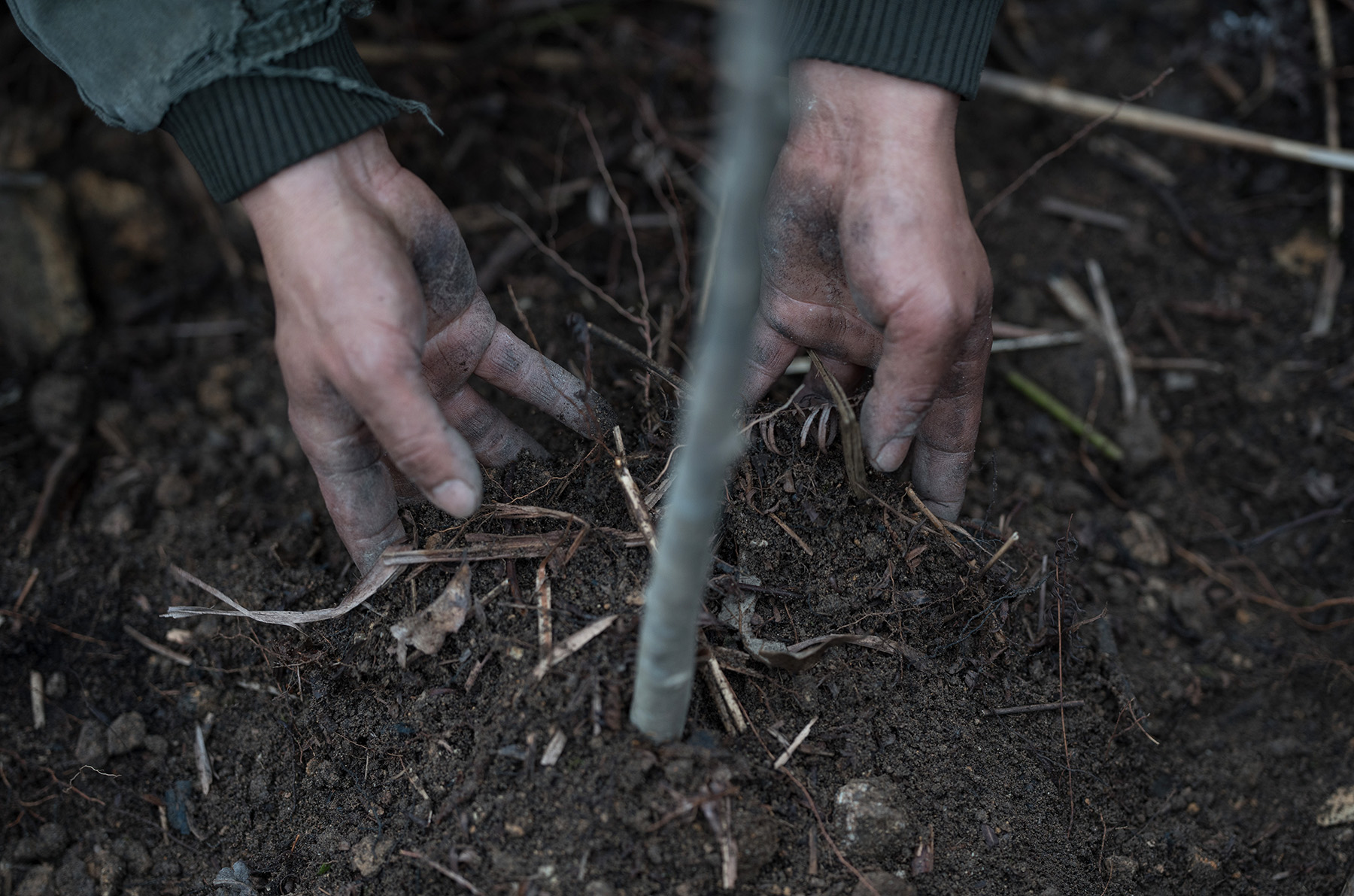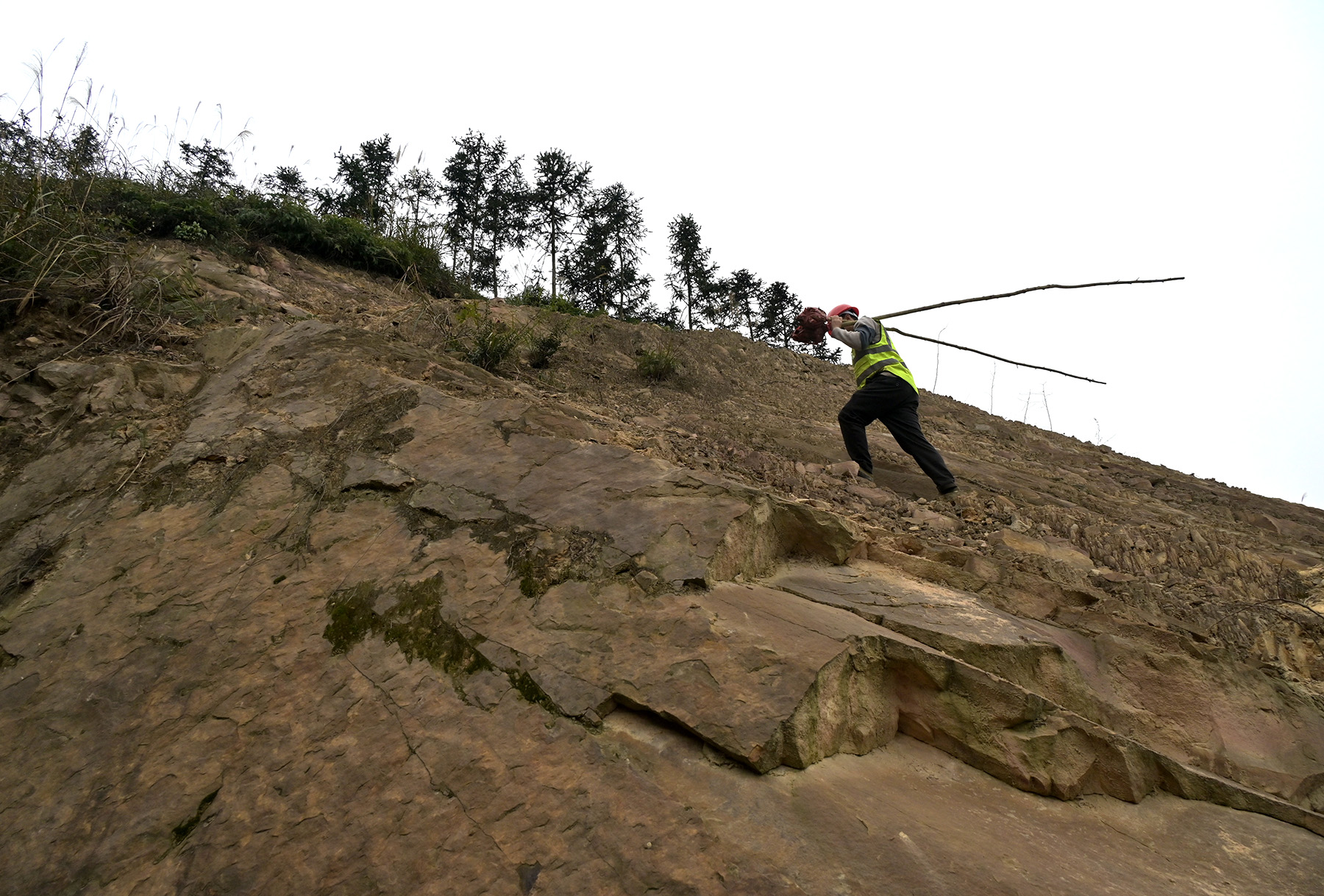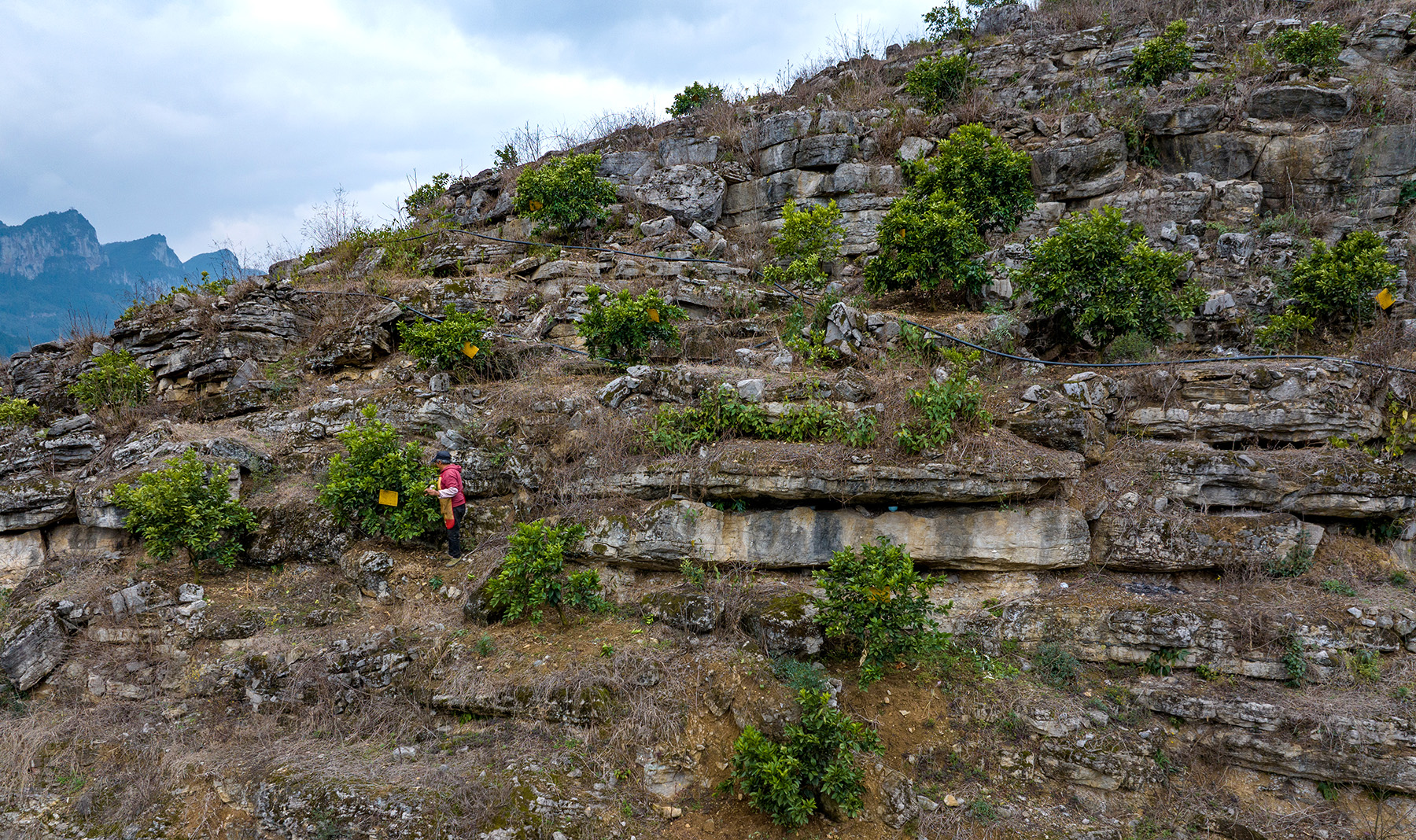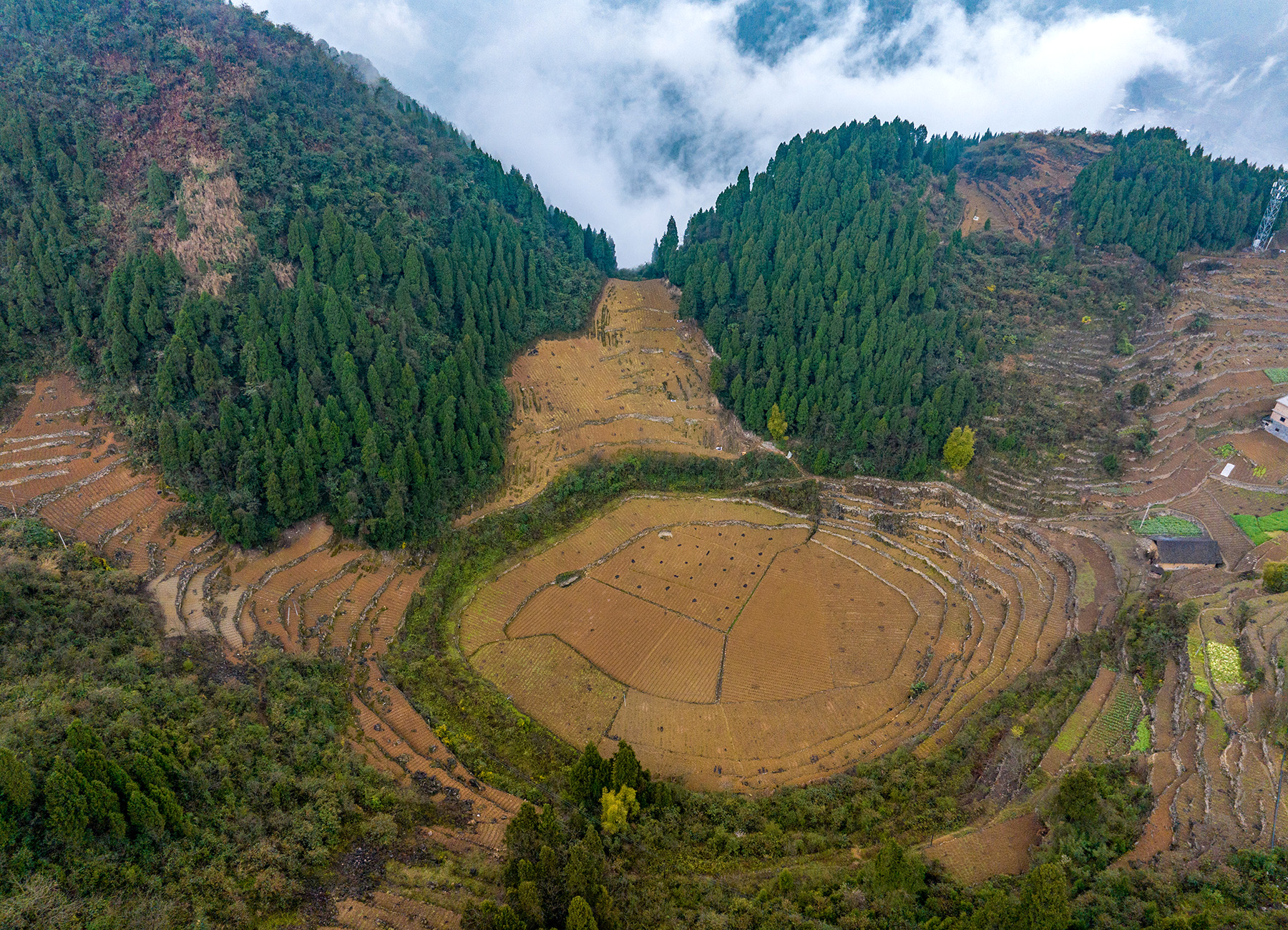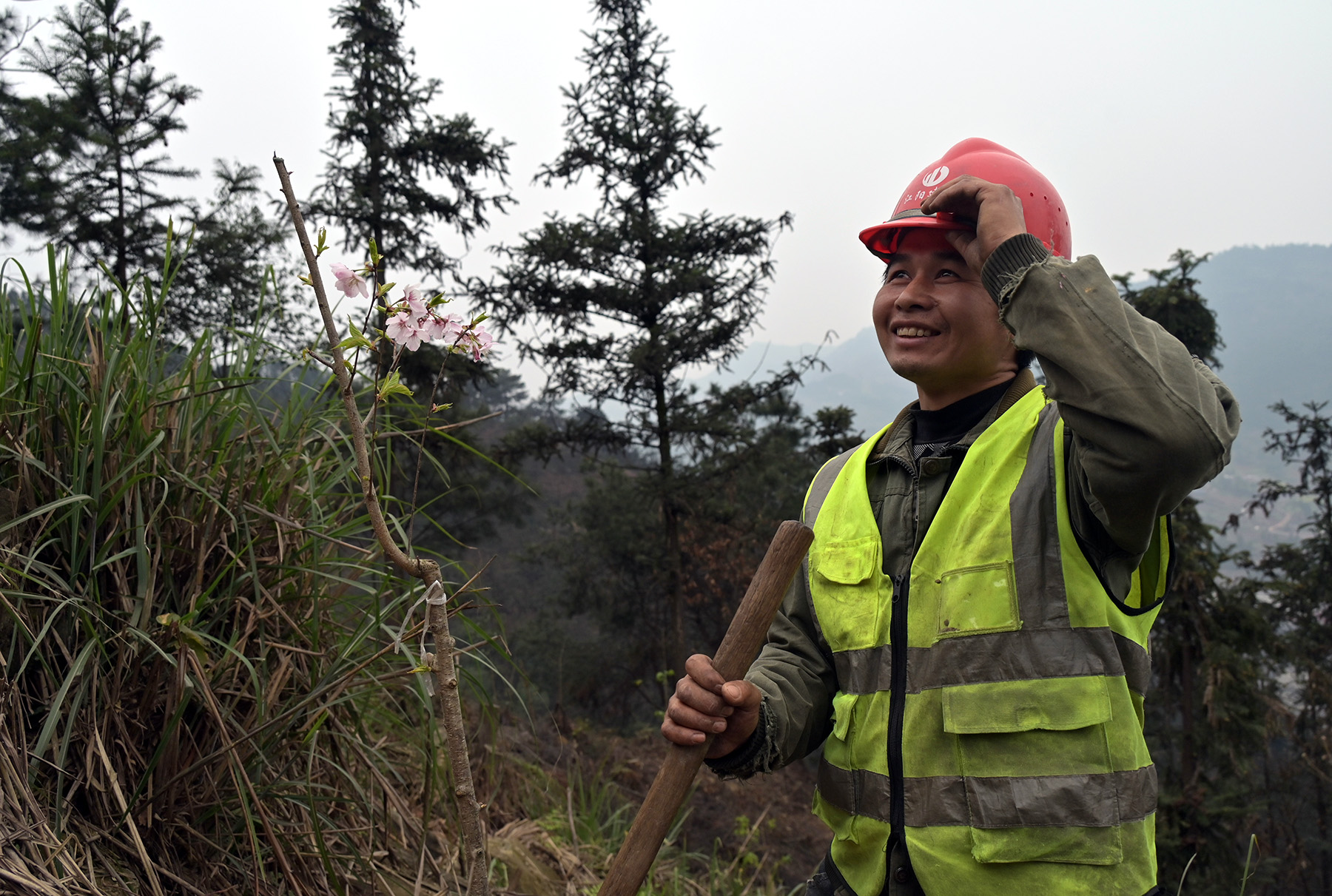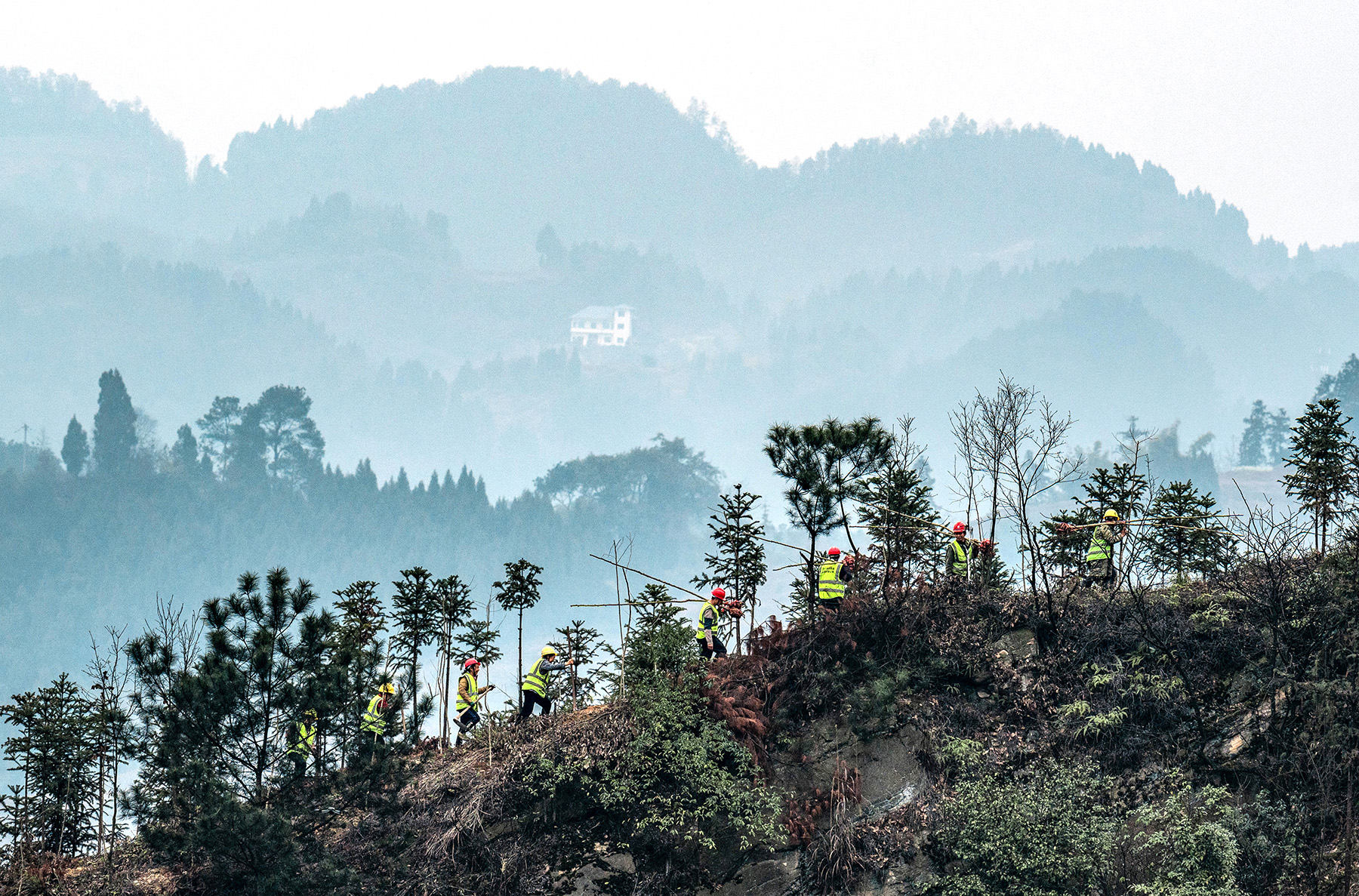
This spring, employees from Sichuan Changjiang Forestation Group planted 6 million saplings of various kinds in Gulin county for water conservation and rocky desertification control in the Chishui River area in Sichuan province of Southwest China.
Rocky desertification is a process of land degradation in karst topography, also known as a kind of "Earth cancer". Rocky desertification land covers 449,300 hectares in Sichuan province, mostly concentrated in Liangshan Yi autonomous prefecture, Luzhou city and other areas. The Chishui River area in Sichuan has grappled with karst rocky desertification with severe soil erosion and a fragile ecosystem.
READ MORE: Green efforts gain more ground
Gulin, a county in Luzhou, has fought rocky desertification for over a decade. Since 2023, 15 villages and towns in Gulin county have taken measures for ecosystem improvement in the local Chishui River basin, highlighting forest ecosystem restoration, especially rehabilitation of degraded forests which aims to improve forest quality and water conservation capacity in the upper and middle reaches of Chishui River basin.
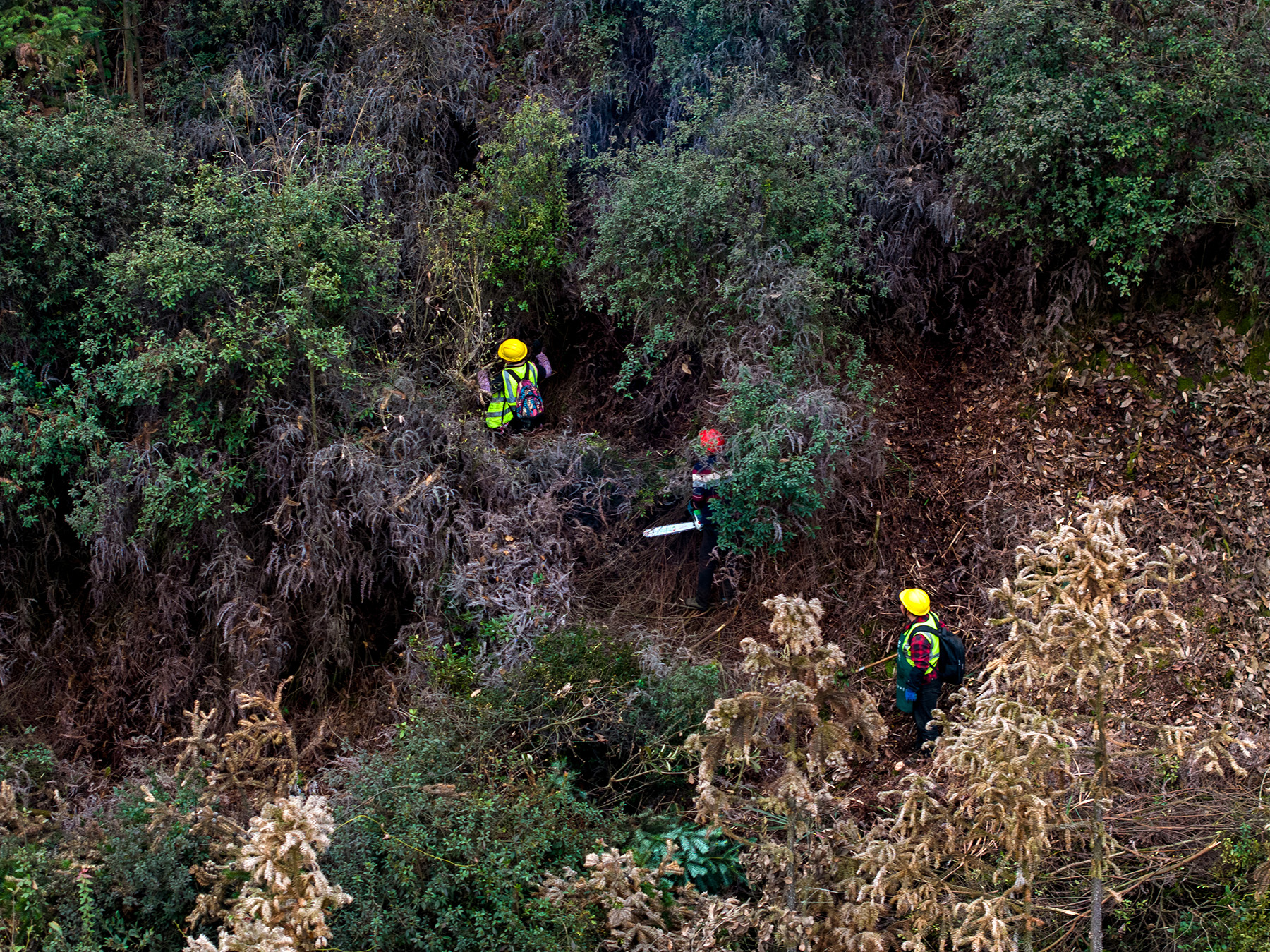
A tree planting team of more than 800 people planted maple, nanmu, cherry, and other trees in the Chishui River basin to increase biodiversity-there used to be only a single tree species planted-and increase the forest coverage rate. Gulin has introduced more comprehensive environmental management measures such as thickening soil layers, and improving fertilization and water diversion.
Improving the ecological environment in the Chishui River basin can help promote poverty alleviation and rural revitalization, solve the issue of a surplus rural workforce, and increase farmers' income.
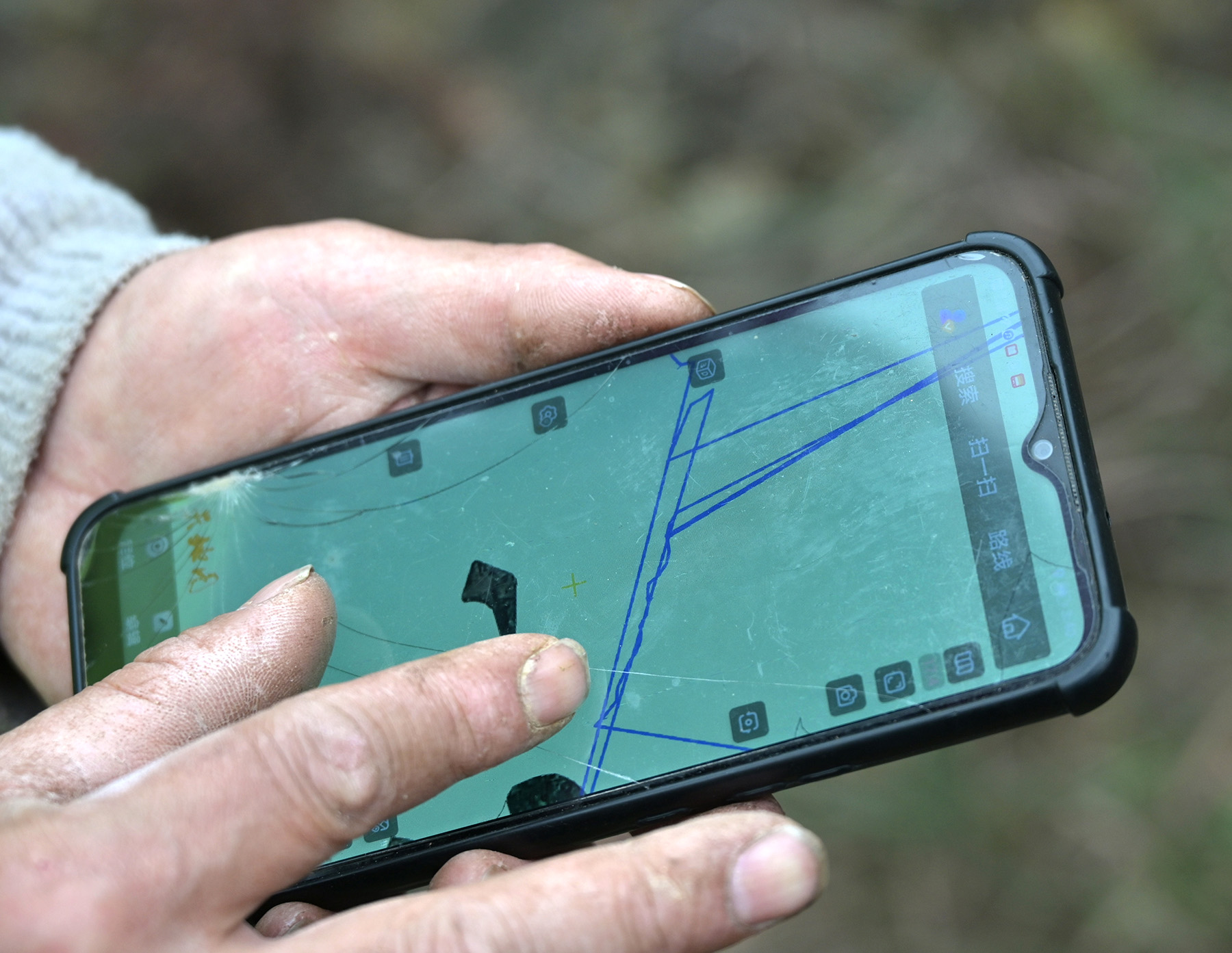
Navel orange trees in an industrial park near Chishui River are bearing fruits. Planting fruit trees in stony lands is a local special industry following early-stage abatement of rocky desertification and an important source of extra income for local people.
ALSO READ: Xi: Continue to secure ‘green assets’
As the latest progress in China's systematic approach to conserving and improving mountains, waters, forests, farmlands, grasslands, and deserts, nearly 4 million hectares of forest were planted, about 4.38 million hectares of degraded grassland were restored and about 1.91 million hectares of sandy and stony land were treated nationally in 2023, according to a National Greening Commission report. In Sichuan, the government treated more than 3,733 hectares of rocky desertification lands in 2023 and plans to treat about 4,000 hectares in 2024.
